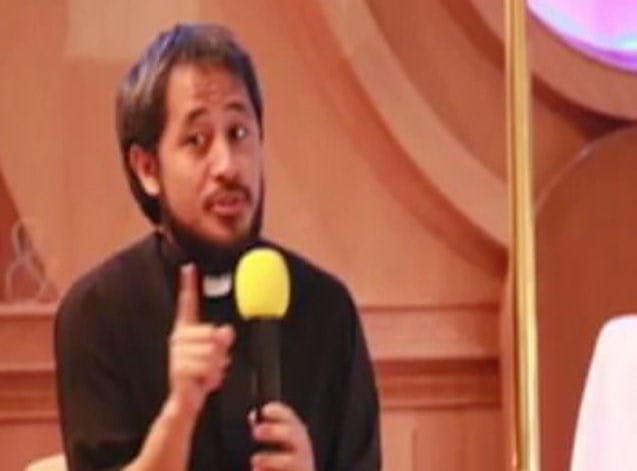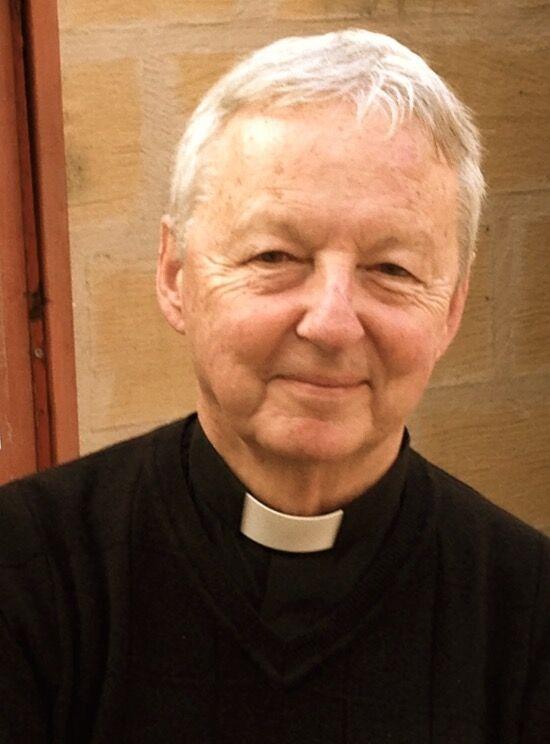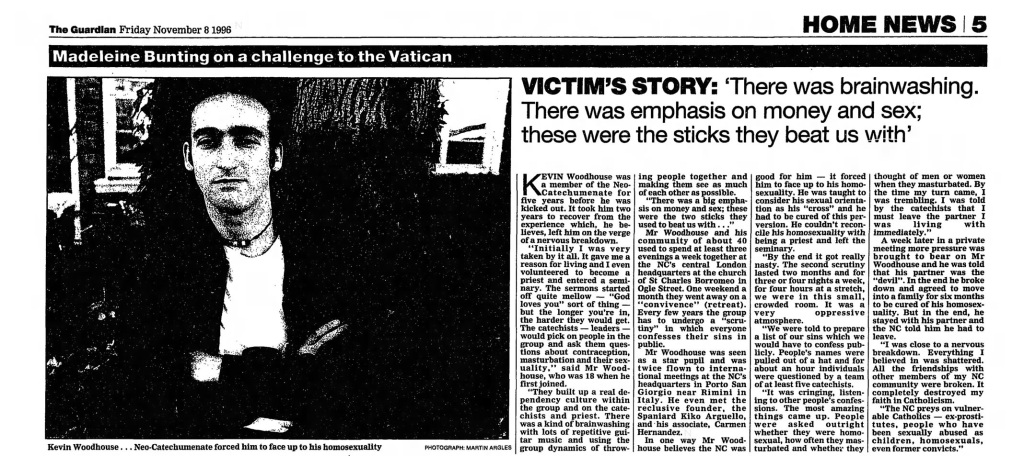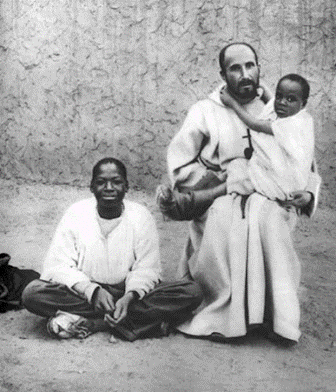The following is an adapted translation of a recent article from our friends at the Osservatorio.
And the Word became flesh and dwelt among us, full of grace and truth; we have beheld his glory, glory as of the only Son from the Father... And from his fulness have we all received, grace upon grace. (John 1:14, 16)
To understand one of the most dangerous aspects of the Neocatechumenal mentality - what we could call "salvation through sin" - it is necessary to first make a long introduction, recalling things that well-catechized Christians ought to have been taught since the days of their childhood.
The Church has always taught that human nature is "wounded by sin." This wound implies that death, sickness, and suffering have also entered into human history, and a whole host of other consequences that give rise to mishaps, innocent suffering, and the continuous inadequacy of every soul before God. The only exceptions are that of Our Lord (true God and true man, who shared human nature with us in everything except sin) and the Most Blessed Virgin (who by a very particular divine grace was exempt from original sin - and therefore lived without the slightest shadow of sin - since Our Lord could not become incarnate in human history stained by sin).
We Catholics, therefore, know that we are sinners, "prone to sin," as well as victims (unfortunately often) of the sins of others; of the injustices of human society which, as such, will always be imperfect; of the enmity of nature (natural disasters, bad weather, ferocious animals, or harmful viruses). We know also that the remedy is to welcome divine grace as much as possible, striving not to sin, striving to multiply virtuous acts--even the small, seemingly insignificant ones--so that the more good works we do (of prayer, of charity, etc.), the more we make it easier for ourselves to welcome the grace that is continually offered to us.
Since we are not all spiritually strong, we are not surprised (but no less mortified) to often fall into sin. We simply do everything to get back up and start a new life (convert), even if that's only a little bit closer to God than the best day we had lived up until the day before. Every step further toward God will bear fruit, even if in the future we mess up even more. And we trust God because He has sometimes deigned to save lost souls who in some period of their lives had done good or been sincerely devoted to Our Lady - therefore, every good work, even the smallest, could be fundamental for our salvation.
Given all this, we understand that it is absurd to think that in order to receive grace, it would first be necessary to "experience sin." It would be like saying that a drinking glass should be broken with a hammer in order to fix it to make it suitable for drinking: absurd, asinine nonsense.
Now, it is true that in the case of human nature and the grace that "fixes" it, the replacement parts are better than the originals. The sinner who welcomes grace is in an even better condition than one who has never sinned--Our Lord tells us this in the Gospels on several occasions, such as when he says that there is more joy in heaven for a converted sinner than for many "who need no repentance." But this never means that to get closer to God it would be necessary to wallow in sin. This is a profoundly wrong mindset because it inverts the premises with the conclusions. Sin takes you away from God; that is indisputable. And yet, we are nonetheless mortal: that is, following that absurd mindset you could find yourself having sinned but not having had the time to convert. St. Alphonsus Liguori writes:
Time is a treasure of inestimable value, because in every moment of time we may gain an increase of grace and eternal glory. In hell lost souls are tormented with the thought, and bitterly lament that now there is no more time for them in which to rescue themselves by repentance from eternal misery. What would they give but for one hour of time to save themselves by an act of true sorrow from destruction! (Meditations on the Four Last Things, #17)
Moreover, we are all - even the saints - already qualified as sinners, as inclined to sin, as in need of grace, for which there is never a reason, much less a need, to sin in order to experience grace. There is never any reason for "moving away from God" as a necessary step to prepare for "coming closer to God."
Well, in the teaching of the Neocatechumenal Way, it really does seem "necessary" to have the "experience of sin" in order to receive grace.
Faced with the case of Neocatechumenal public sinners, the so-called "catechists" of the Way make you believe that it was necessary to sin in order to finally savor God's forgiveness. Instead, we Catholics know that it is never "necessary" to sin, and that neither the quantity nor the quality of sins matters to produce forgiveness. When certain great sinners converted, they realized the Lord's mercy precisely because they realized (and truly repented of) their wickedness, but this does not imply that in order to approach God's glory they absolutely had to sin, and they themselves, in savoring mercy, finally realized it: "Late have I loved you," sighed St. Augustine.
When we sing in the Exultet of Easter, "O happy fault, that earned so great, so glorious a Redeemer," we are not affirming a necessity of having "fault" in order to obtain redemption; rather, we are speaking of the free and merciful work of God, and we are struck by the immensity of this mercy because during our lives we have had so many "faults" - which were neither necessary nor useful.
We reiterate here that as in every heretical sect, in the Way it happens that the most egregious errors are hidden behind big words as grandiose as they are obscure. Just as the typical Neocat verbally claims to love the Lord in the Eucharist, but in deed acts as if he does not believe in Our Lord's Real Presence in the Blessed Sacrament, similarly, the typical Neocat verbally claims to avoid sin and take refuge in the Lord's mercy, but in fact, acts as if he had been continually taught that in order to experience mercy he must first let himself "go to seed" in sin.
In fact, the layman Kiko Argüello - who called himself "Your Catechist" and even "John the Baptist among you" - proclaims that "man cannot fail to sin" (that is, the typical Neocat must not strive to flee temptations and must not resist sin); he proclaims that the confession of mortal sins would be optional and postponable at will, just as if he were authorizing (indeed, enticing) his followers to wallow in sin before they can say they have experienced pardon and forgiveness.
In fact, on the one hand, we have the typical Neocatechumenal gab: "The Lord has forgiven me from abortions/fights/divorces/discos/murders/drugs" (above all by people who would never have done such things); on the other hand, we have the self-absolution of the comfortable, such as when a typical Neocat might say, "Eh, when the Lord takes his hand off my shoulder, I do all sorts of things!" (as if it was the Lord who forced him to sin).
We must also note that Kiko and Carmen did not invent this diabolical concept of the need to sin as a prelude to the experience of forgiveness (diabolical because sinning is indicated as "necessary," while forgiveness may not even have the occasion or conditions to come about), which dates back at least several centuries.
Here, we recall the case of the Jews who believed in a false and self-styled messiah named Sabbatai Zevi. Zevi, who lived in the 17th century, was captured by Muslims who forced him to either convert to Islam or be beheaded. Zevi had passed himself off among his co-religionists as the Messiah, and created around himself a discreet movement that followed him, yet did not recognize Christ. And guess what he did? He converted to Islam.
His followers, therefore, invented a highly-articulate explanation: they said that he had only converted externally and that, therefore, in order to approach God, it was first necessary to descend into the abyss of sin, and from there could go back up. The great sin of abjuring their faith - a public scandal as well as a hypocritical fiction - served precisely as their "experience of sin."
Then followed other false messiahs who attracted numerous other Jews in the following decades and centuries, and all of them elaborate that absurdity in ever more cumbersome ways, organizing orgies and other such crap, in order to have private "experiences of sin" - going against every law and experience of Judaism while publicly making the appearance of good converts to Islam or Catholicism.
Now, we see that same glaring error in the Neocatechumenal mentality directly derived from the preaching of Kiko and Carmen, instilling it in subtle ways.
When Kiko says that it is necessary to experience sin, to feel like a sinner, he is insinuating that his followers should wallow in sinfulness. He is not teaching them to flee temptations; he is not teaching them to resort as much as possible to the primary instruments of grace (the sacraments); he is only speaking generically of detesting oneself, without making the connection to accepting grace. In fact, in communities, it is typical to begin one's "lay homilies" by saying "I disgust myself..." For how many times Kiko has blathered about grace, the love of the Lord, mercy, forgiveness, etc., the Neocatechumenal mentality is always that of a gloomy pessimism, a wallowing in sin, a surrender to "man cannot help but sin; sin is inevitable." (Implied: "What am I even doing? Why should I flee temptations if man is irredeemably a sinner?") So even blathering on about "the Lord always forgives," the Neocats remain engulfed in self-hatred rather than collaborating with divine grace.
This pessimistic and self-defeating mentality is very useful to the leaders of the Way, since it zombifies and lobotomizes the brothers of the communities, making them incapable of using their freedom and capable only of spirtitual self-flagellation and letting themselves be guided like puppets. The puppetteers, meanwhile, are interested in deciding what you do you with your life, your job, your studies, your vocation, and above all, your money. And to feed the mentality, in addition to the apocalyptic and funereal preaching, there are the various "rounds of experiences," "scrutinies," etc., in which many Neocats invent super-gigantic sins, because otherwise the so-called "catechists" judge you as having something to hide.
It should be noted that in the experience of the Church, even in speaking of the ugliness of sin, it is always remembered that the individual is called to repent and that, thanks to the sacraments (with the appropriate dispositions), he can always be reborn as a new man. In the Church, sin is neither made a spectacle, nor transformed into a foothold for self-defeating pessimism, nor considered "necessary" to be saved.
This Kikian-Carmenian fixation of showing off one's super-gigantic sins in public, of speaking in positive terms about experiencing sin, is something that reminds us of the tempter in the Garden of Eden: "you will be like God, knowing good and evil..." without saying that "knowledge of evil" was enmity with God. When the Church says that it is necessary to recognize oneself as a sinner, she is speaking of a movement of the soul which recognizes one's sins and wishes to draw closer to God. While the Church reminds you of the sins you have already committed, Kiko gives you the bonus to commit more. The Church invites to you conversion of heart and to look ahead; Kiko invites you to navel-gaze, to look always at your sins, and to declare yourself a sinner without this implying your effort to convert.
Kiko heretically teaches that "the Lord has already forgiven you... then, tomorrow, if you want, you will seal [in confession]." He insinuates that the Lord will forgive you anyways - implying automatically, even if you are not repentant - so you can stay with your soul stained with sin; so much so that "tomorrow" (that is, who knows when), "if you want" (that is, when you really feel like it, or when pigs fly), "you will seal" (fancy words because obviously Kiko is too sorry to say that the individual needs confession: after all, the Way organizes their "penance services" every month or two, right? Confession can wait. "Seated communion" is only a distribution of a "sacred snack of fraternal unity," feasible even in a state of mortal sin, because, as Kiko says, man cannot not sin).
There is also a human explanation for this very mistaken mentality. The fact is that the sinner who does not work to pick himself up is a very comfortable puppet, even from a psychological point of view. That is why the Way gradually instills a pessimistic and funereal conception of life, a delegation of every mental and spiritual effort to the arrogant and senseless directives of the "catechists," an authorization to comfortably self-absolve ("when the Lord takes his hand off my shoulder...") while at the same time pretending to be pure and gentle lambs. They boast of how much Lenten fasting they have done, and then their life is all about taking revenge, slandering, being vulgar in the family and in society, denying evidence when it is inconvenient for the Way, at the cost of lies and deceit.
In this Christmas season, let us humbly submit our sinfulness before the Incarnate Christ Child of Bethlehem and, like him, "increase in wisdom and years," striving to sin no more. The angels proclaimed peace to men of good will - for the one wallowing in sin, there is only more of the same.






















